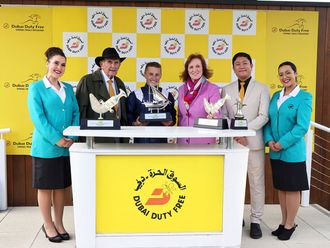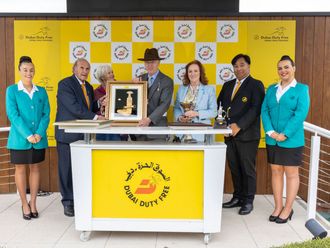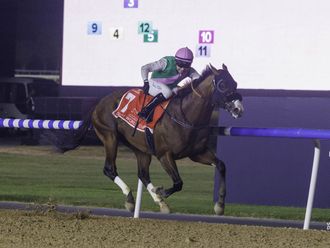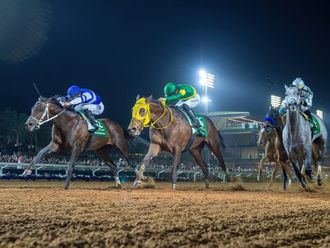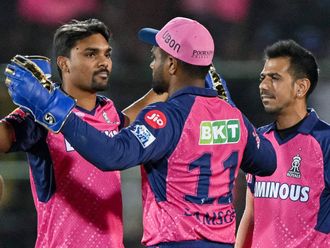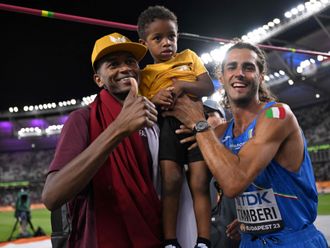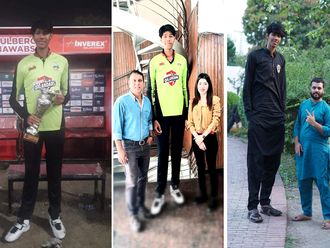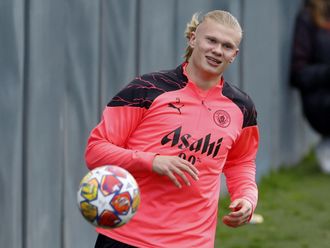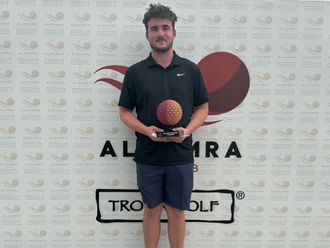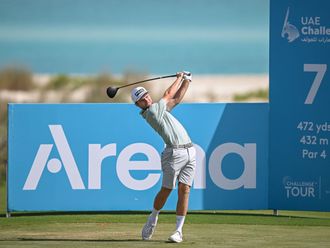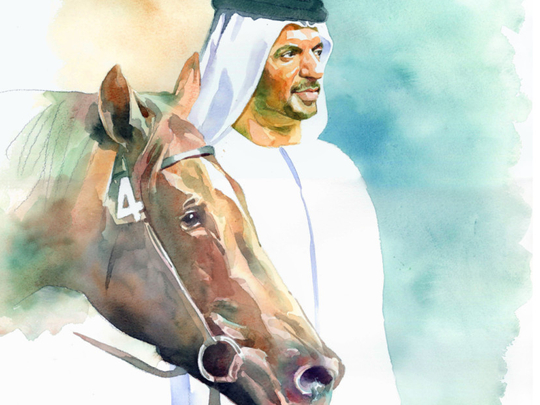
Dubai: Inside his functional office, housed on the mezzanine floor of the arched building that leads to the famous Godolphin stables, Saeed Bin Surour is sitting at his spacious desk, which looks big enough on which to play a game of table tennis, looking like only he can.
He sports a royal blue Godolphin baseball cap and his trademark self-assured look. I walk in and his face breaks into a smile as he politely stands up to shake my hand for the umpteenth time in the more than 22 years that he has known me. As always, the handshake is warm and comforting.
His desk looks busy, but in a tidy sort of way. There are files and papers, heaps of them, neatly arranged, to facilitate easy reference should he need to, which he rarely does. Besides his phenomenal training skills, which have secured him a staggering 1,849 victories in 12 countries worldwide and four British trainers’ championships, Saeed has a phenomenal memory.
A quick journalist’s all-encompassing scan of his desk also reveals a copy of the Gulf News Sports section, which pleases me, and a large collection of markers, which intrigues me. Saeed has never struck me as being overly colourful. But these fluorescent marvels would later play an important role in this interview.
After exchanging pleasantries, I inform Saeed that this time I am here to essentially talk about the Dubai World Cup, his 20th and mine as well.
He nods in acceptance.
Like an archer optimistically reaching into his quiver for an arrow that he hopes will hit the bull’s eye, I begin with a question that I would normally have delivered at the end of the interview. What has been his defining moment over the past 19 World Cups, I ask.
“For me, the past does not exist,” he says spontaneously. “It’s there, you don’t want to erase it, but I think it counts for nothing. Not now, not tomorrow.”
I give him my most confused look, an attempt to get him to explain what he has just said, which shocked me out of my Argyle socks.
“I don’t mean it in a bad way, don’t get me wrong. My career has been amazing, far beyond expectations. What I mean is that what’s done is done, you have to move on, take up more challenges, risks, win more races, travel further, everything,” he says with conviction.
“If you live in the past, and are happy with what you have accomplished, you put the present and future in jeopardy.
“In this business, every day matters, every race. You don’t only want to win the big ones, although they are special. Every result counts, no matter how small it may seem, it boosts the confidence in the stable and motivates the people who work with you. You can see it in their eyes.”
Saeed’s current public persona as a multiple-winning trainer for one of the world’s most competitive, successful and influential stables gives him the status you would accord a celebrity, a Roger Federer, a Greg Norman, a Michael Schumacher. But he is least impressed by the idea.
‘Amazing journey’
“As long as people see me as a successful trainer, I’m happy,” he says with his normal-guy smile. “I don’t know what fame means. To me what I do is a job, it’s what has made my life, and brought a certain amount of happiness to my family.
“It has been an amazing journey and for that I have to honestly thank His Highness Shaikh Mohammad Bin Rashid [Al Maktoum, Vice-President and Prime Minister of the UAE and Ruler of Dubai] for believing in me and giving me the opportunity to train some of the best horses in the world — Dubai Millennium, Street Cry, Electrocutionist, Moon Ballad, African Story, Almutawakel,” he says referring to his six Dubai World Cup winners.
The interview is on the right track and we are on the same page. As I attempt to process what he has told me, I find it a bit difficult not to be distracted, once again, by his simplicity.
Without trying to sound patronising, I would say interviewing Saeed is always something I look forward to. There is an almost absolute consistency in everything he says, which I have come to understand over the years.
Although my little voice recorder is taping the conversation, I also occasionally make a few notes of what really catches my attention. I know Saeed has been watching me every time I do so and at this point he asks if he can have a look.
“I always like to see how other people work, it interests me,” he said, asking “What are all these notes?”
I explain that I did some homework, just to refresh my memory, before the interview.
“OK,” he says, reaching out for one of his many florescent markers and drawing a line over something I had jotted down. This is what I am talking about. I like the line ythat says ‘you have to move on, take up more challenges, risks, win more races, travel further, everything’.
Gentle reminder
I remind him that this is what he said. “I know, but if this is what you came here to find out, then it’s true,” he says. “To me my work is all that matters, I spend more hours here than with my family, 365 days in a year. In Dubai, in Newmarket.
“It’s what I live for and what motivates me every time I wake up.
“In a few days’ time we will meet again at Meydan for the Dubai World Cup, and all eyes of the racing world will be on Dubai. I know a lot of people expect me, Godolphin to win again. After all it’s the biggest race in the world,” he adds.
“Yes it is, but it is also one in a long line of challenges that await me through the rest of the year.
“Perhaps when it’s over, and win or lose, I will look back on all the special moments that I have enjoyed over the years at Nad Al Sheba and Meydan. But then I must move on … into the future.”


